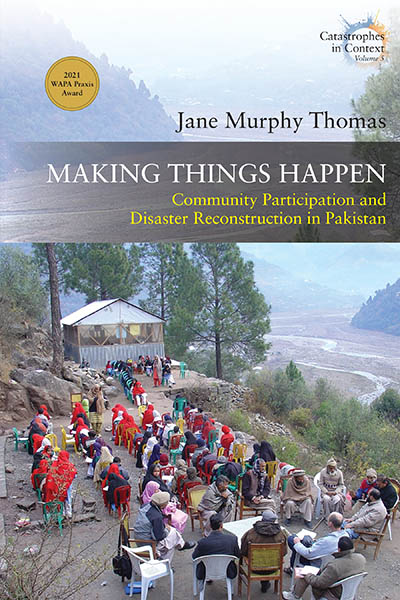“I find the book to be truly remarkable and absolutely stand-alone in what it describes and what it does. As opposed to the usual disheartening tale of the failure of a disaster reconstruction (or development) project, detailed here is a totally successful post-disaster reconstruction achievement due to the express involvement throughout of the anthropological perspective and community participation.” • Susanna Hoffman, Chair of The Risk and Disaster Commission of the International Union of Anthropological and Ethnographic Sciences (IUAES)
Drawing on the Pakistan Earthquake Reconstruction and Recovery Project (PERRP), this volume explores the sociocultural side of post-disaster infrastructure reconstruction. As the latter is often fraught with delays and even abandonment—one cause being ineffective interactions between construction and local people—PERRP used anthropological and participatory approaches. Along with strong construction management, such approaches led to the rebuilding being completed on time. As disasters are increasing in number and intensity, so too will be the need for reconstruction, for which PERRP has lessons to offer.
Jane Murphy Thomas is an independent consultant, practitioner, project manager and social anthropologist in projects for UN agencies, NGOs, governments, donor agencies, and consulting firms, specializing in anthropological approaches and community participation in conflict and disaster-prone locations.
LC: HC440.5.Z9 C367 2022
BISAC: SOC040000 SOCIAL SCIENCE/Disasters & Disaster Relief; SOC002010 SOCIAL SCIENCE/Anthropology/Cultural & Social; TEC052000 TECHNOLOGY & ENGINEERING/Social Aspects
available open access under a Creative Commons Attribution-NonCommercial-NoDerivatives 4.0 International License (CC BY-NC-ND 4.0) with support from Berghahn Open Migration and Development Studies initiative.


